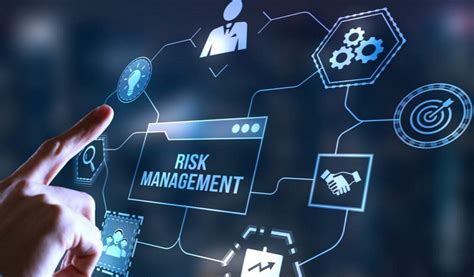In today's rapidly evolving business landscape, technology has become a crucial component of nearly every organization's operations. However, with the increased reliance on technology comes a growing array of potential threats and risks that can have devastating consequences if left unaddressed. From cyber attacks and data breaches to system failures and compliance issues, the potential pitfalls are numerous and can be overwhelming for businesses to navigate on their own.

Fortunately, tech risk consulting services can provide businesses with the expertise and guidance needed to identify, assess, and mitigate these threats. By partnering with a seasoned tech risk consultant, organizations can gain a deeper understanding of their unique risk profile and develop effective strategies to minimize potential disruptions and ensure long-term success.
Understanding the Benefits of Tech Risk Consulting
So, what exactly is tech risk consulting, and how can it benefit your business? In essence, tech risk consulting involves a comprehensive evaluation of an organization's technology infrastructure and systems to identify potential risks and vulnerabilities. This includes assessing everything from network security and data storage to compliance and regulatory requirements.
Key Benefits of Tech Risk Consulting
By leveraging the expertise of a tech risk consultant, businesses can enjoy a range of benefits, including:
- Improved risk management: Tech risk consulting provides businesses with a clear understanding of their risk profile, enabling them to develop targeted strategies to mitigate potential threats.
- Enhanced security: By identifying vulnerabilities and weaknesses, businesses can take proactive steps to strengthen their security posture and protect against cyber attacks and other malicious activities.
- Increased compliance: Tech risk consulting helps businesses ensure they are meeting relevant regulatory requirements and industry standards, reducing the risk of costly fines and reputational damage.
- Better decision-making: With a deeper understanding of their technology infrastructure and associated risks, businesses can make more informed decisions about investments, resource allocation, and strategic planning.
Common Threats and Risks Facing Businesses Today
In today's fast-paced business environment, organizations face a multitude of threats and risks that can impact their operations, reputation, and bottom line. Some of the most common include:
- Cyber attacks: From phishing and ransomware to malware and DDoS attacks, cyber threats are a constant concern for businesses of all sizes.
- Data breaches: The loss or theft of sensitive data can have devastating consequences, including reputational damage, financial losses, and regulatory penalties.
- System failures: Downtime and system failures can disrupt business operations, impact customer satisfaction, and result in significant financial losses.
- Compliance issues: Failure to meet regulatory requirements or industry standards can result in costly fines, reputational damage, and even business closure.

The Role of Tech Risk Consulting in Mitigating Business Threats
So, how can tech risk consulting help mitigate these threats and risks? By partnering with a seasoned tech risk consultant, businesses can:
- Conduct thorough risk assessments: Identify potential risks and vulnerabilities, and develop targeted strategies to mitigate them.
- Implement effective security measures: Strengthen security posture through the implementation of robust security protocols, procedures, and technologies.
- Develop incident response plans: Establish clear plans and procedures for responding to security incidents, minimizing downtime, and ensuring business continuity.
- Ensure compliance: Verify that all technology infrastructure and systems meet relevant regulatory requirements and industry standards.
The Tech Risk Consulting Process
The tech risk consulting process typically involves a series of steps, including:
- Initial consultation: Meet with the tech risk consultant to discuss your business's unique needs and objectives.
- Risk assessment: Conduct a comprehensive risk assessment to identify potential threats and vulnerabilities.
- Risk analysis: Analyze the identified risks, prioritizing them based on likelihood and potential impact.
- Strategy development: Develop targeted strategies to mitigate identified risks, including the implementation of security measures, incident response plans, and compliance initiatives.
- Implementation and monitoring: Implement the developed strategies, monitoring their effectiveness and making adjustments as needed.

Best Practices for Selecting a Tech Risk Consultant
When selecting a tech risk consultant, there are several best practices to keep in mind, including:
- Look for relevant experience: Choose a consultant with extensive experience in tech risk consulting, particularly in your industry or sector.
- Verify credentials: Ensure the consultant holds relevant certifications, such as CISA or CRISC.
- Check references: Ask for references from previous clients, verifying the consultant's expertise and effectiveness.
- Evaluate their approach: Ensure the consultant's approach aligns with your business's unique needs and objectives.
Gallery of Tech Risk Consulting






Frequently Asked Questions
What is tech risk consulting?
+Tech risk consulting involves a comprehensive evaluation of an organization's technology infrastructure and systems to identify potential risks and vulnerabilities.
Why do I need tech risk consulting?
+Tech risk consulting helps businesses identify and mitigate potential threats and risks, ensuring the security, compliance, and continuity of their operations.
How do I select a tech risk consultant?
+Look for relevant experience, verify credentials, check references, and evaluate their approach to ensure the consultant is a good fit for your business.
In conclusion, tech risk consulting is a vital component of any business's risk management strategy. By partnering with a seasoned tech risk consultant, organizations can identify and mitigate potential threats, ensuring the security, compliance, and continuity of their operations.
